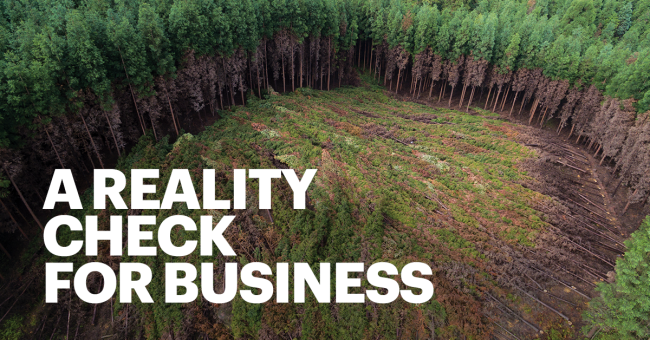Business Contribution to the 2030 Agenda for Sustainable Development Not on Track, United Nations Global Compact and Accenture Study Finds
Launched today at the United Nations in New York, the UN Global Compact-Accenture Strategy 2019 CEO Study – ‘The Decade to Deliver: A Call to Business Action’ – finds that just 21% of Chief Executives believe business is playing a critical role in contributing to the Global Goals, and less than half (48%) are integrating sustainability into their business operations. Despite pockets of progress and innovation since the Global Goals were agreed in 2015, socioeconomic, geopolitical and technological uncertainties over the past four years have distracted CEOs’ sustainability efforts.
The study draws on insights from more than 1,000 CEOs from many of the world’s leading organizations. Together with the UN Global Compact Progress Report, which surveyed nearly 1,600 companies from over 100 countries, it forms the most comprehensive research to date on business contribution to the 2030 Agenda for Sustainable Development.
“With less than 4,000 days remaining until the 2030 target, business leaders are not content with current progress and are calling for their sectors and peers to step-up and turn commitment into action,” said Lise Kingo, CEO and Executive Director of the UN Global Compact. “The scale of the challenge is unprecedented and requires all stakeholders, including Governments, policymakers, business leaders, investors, shareholders, civil society and academia, to work together to accelerate change. We are confident change is coming and are particularly pleased with the progress from the 87 companies that have announced this week that they are leading the way towards a 1.5°C future.”
A decade to deliver the Global Goals
In the four years since the 17 SDGs were agreed, there have been bright spots of progress, for example, the global population are living better lives and infant mortality under the age of five has declined. However, advancement across most of the Global Goals has been sluggish or even reversed. Today, 700 million people still live in extreme poverty, over 170 million remain jobless and more than 70 million seek refuge. Famine, extreme climate events, overpopulation, water scarcity, gender-based violence and a rise in armed conflict and extremism continue to define lives around the world.
Global business must play its part in driving positive change. CEOs say an unprecedented shift in public expectations is encouraging businesses to get ahead on sustainability to build trust and competitiveness in their markets.
“With sustainability being integral to the competitive agility of every organization — and increasingly important to growth, profitability and trust — it’s time for leaders to ensure the Global Goals are firmly embedded in corporate strategy and company purpose,” said Peter Lacy, Senior Managing Director of Accenture Strategy. “Technology may hold the true key to unlocking progress on the Global Goals. The speed of digital, biological and physical innovations will continue to be enormous in the decade ahead, and business must harness and align investments with global environmental, social and governance outcomes”.
Challenging environment for business
There are significant positives for business. Today, 99% of CEOs surveyed say sustainability is critical to the future success of their organization, and 81% of companies are taking action to progress the Global Goals. Over 200 companies surveyed have approved science-based targets for climate action and a similar number have made commitments to reduce their greenhouse gas emissions to net-zero by 2050. Furthermore, 63% see technology as a critical accelerator of the socio-economic impact of their companies.
However, these commitments are failing to deliver the tipping points required to achieve the Global Goals. CEOs say that business execution is not measuring up to the size of the challenge or previous levels of corporate ambition. Over a quarter (28%) cite “absence of market pull” as a top barrier to sustainable business, and over half (55%) say they face a key trade-off in the pressure to operate under extreme cost-consciousness while seeking to invest in longer-term strategic objectives. Just 44% of CEOs believe a net-zero future is on the horizon for their company in the next 10 years.
Kick-starting a decade of delivery
Nearly three-quarters (71%) of CEOs believe that with increased commitment and action, businesses can play a crucial role in contributing to the Global Goals.
To accelerate progress, CEOs identify three critical requirements. First, an urgent need to raise corporate ambition within their own organizations to prioritize action against the 17 SDGs. Second, the need for business, Governments, regulators and non-governmental organizations to come together to shape realistic, technology-enabled, science-based solutions to the global challenges. And third, redefining responsible leadership to help business to be a leading driver of the Global Goals.
The future of responsible leadership
For companies to progress towards a more sustainable future, CEOs highlight the leadership qualities that are critical for success:
- Pioneering profit through purpose: Growing expectations from consumers, employees and the public are placing new demands on leaders to serve a higher purpose in helping ensure a sustainable future. Leading CEOs look beyond near-term profits in order to meaningfully drive forward the sustainability agenda and foster a culture of responsibility and transparency to demonstrate impact. They align sustainability with their core business strategy, operations and investments in innovation and technology.
- Galvanizing ecosystems: CEOs must engage their broader business and technology ecosystems to find collective solutions to the SDGs. Given the nature and complexity of these issues, science-based leadership will play a crucial role in driving action and impact, as will applying technologies to instigate change.
- Personally committing to sustainability: Responsible leaders take sustainability personally and actively advance the circular economy, hold people to account for sustainability goals, force the discussion with investors, and lead positive change with authenticity and integrity.
For more information on the report, visit here.













